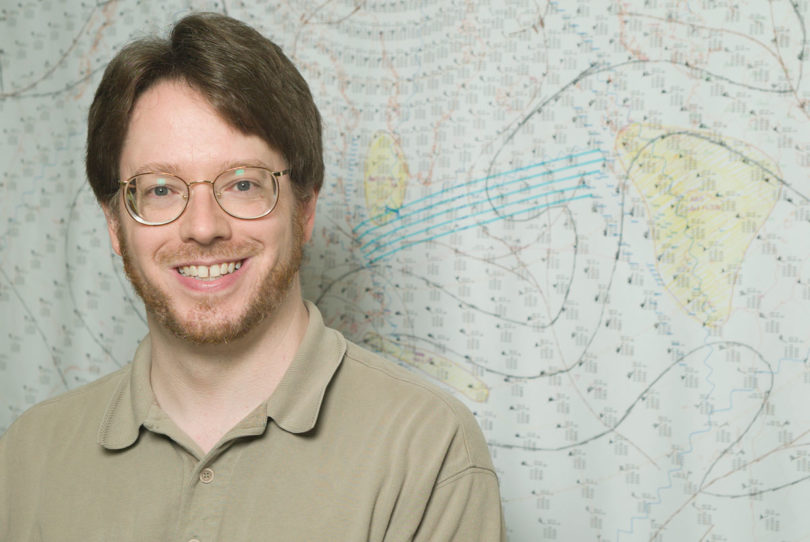Get as much as you can out of your education and to hell with five-year plans.
That’s the advice that John Knox, assistant professor of geography, would give students if he were giving the final talk of his life. That was his duty as the speaker at the Russell Last Lecture.
“My goal in this, my first last lecture, is to give you some proverbs for living,” he told students.
The lecture series was created in 2003 by University Housing, the Franklin College of Arts and Sciences and the division of Academic Enhancement. The speaker is chosen by a vote of the nearly 1,000 residents of Russell Hall.
Knox’s lecture, “Specialization is for Insects, Serendipity is for Human Beings” traced the arc of his career from college to the present, showcasing his exposure to a breadth of information that enabled him to find unlikely success and friendships.
Taking a wide-range of classes allowed him to find his “intellectual soulmates” in the Romantic poets, and opened his mind to new ideas he couldn’t have encountered in a strictly science-based education.
“The question that doubters might have is this: does breadth have any real place or purpose in an increasingly specialized world, in which we pay specialists to set our bones and program our computers and solve our equations and even comfort our dying,” he said. “I say, ‘Yes. It does.’ In fact, breadth is crucial even to that most hallowed of acts of specialization: scientific breakthroughs. I claim that when breadth is combined with specialization, something happens that is so remarkable that it has its own unique, and indeed specialized, word for it: serendipity.”
Serendipitous events, or beneficial acts of chance, account for discovery of penicillin as well as Knox’s own widely known research breakthroughs.
The first happened when his wife, Pam Knox, the Georgia assistant state climatologist in the Faculty of Engineering, brought home a letter sent to the radio show on which she worked. Its author, a Connecticut inventor without a college education, claimed to have discovered a new way to calculate the mathematical constant known as “e.” After looking it up, Knox thought the inventor might be onto something and helped him publish his work.
“We published our results in two math journals and got written up in Science magazine for our exploits, and our work is anthologized in a popular college textbook,” he said.
His next great serendipitous experience led to his research on clear-air turbulence, which landed him his first published journal article, a “high commendation” in an international prize, and funding from NOAA.
Those experiences, both far cries from his intended research path, occurred because he was open to alternative directions in his career, he said.
“If I had a five-year plan, I probably wouldn’t be here right now,” he said.
The talk is available at www.uga.edu/housing/academic/russell_lectures.html.







